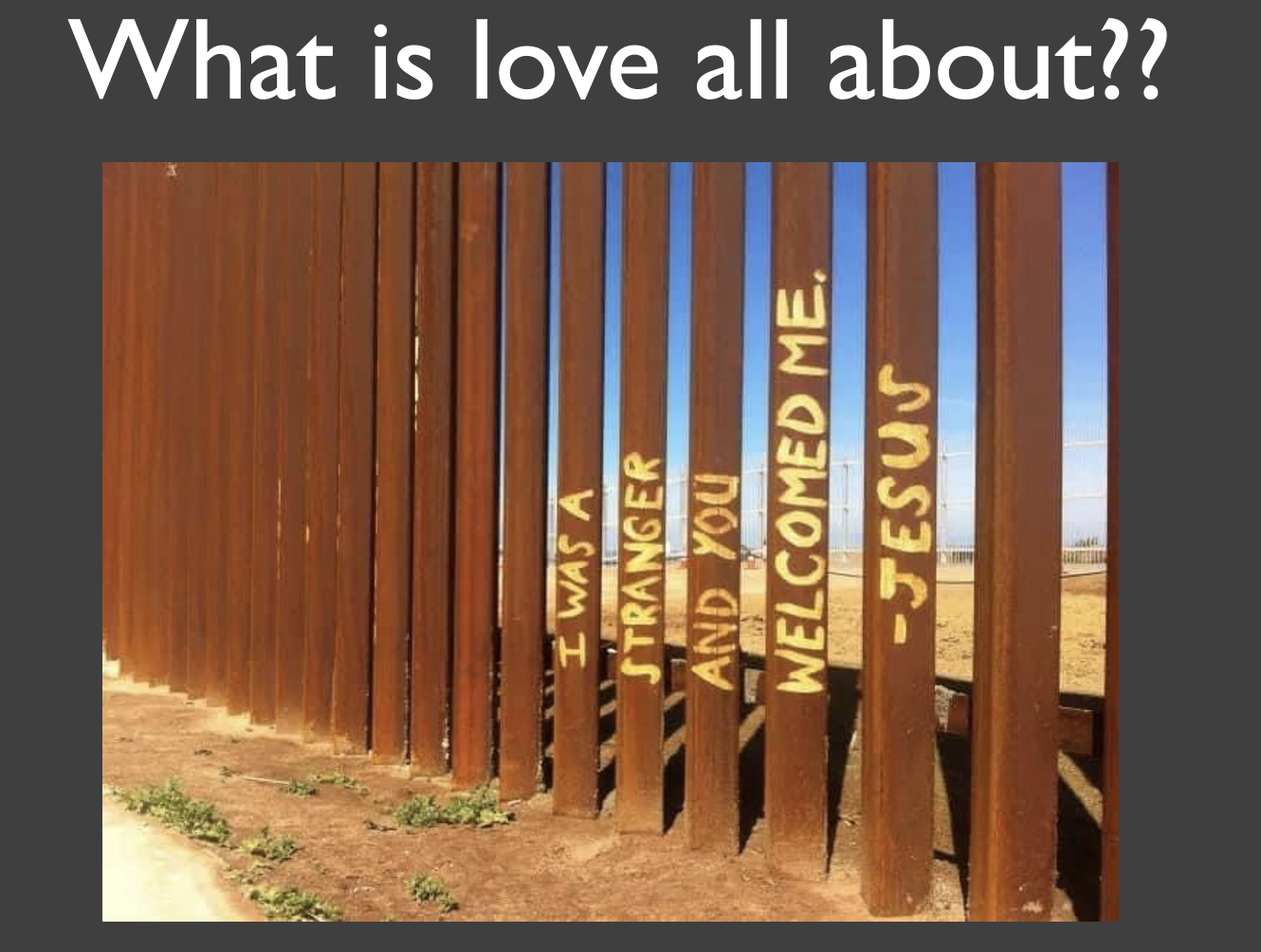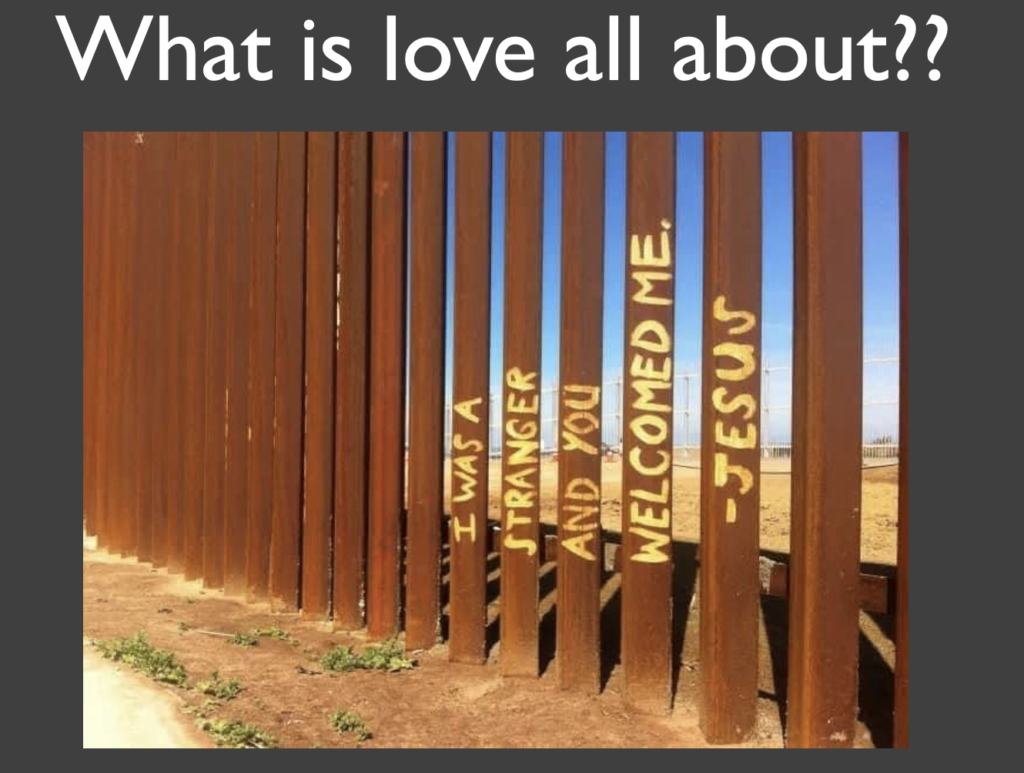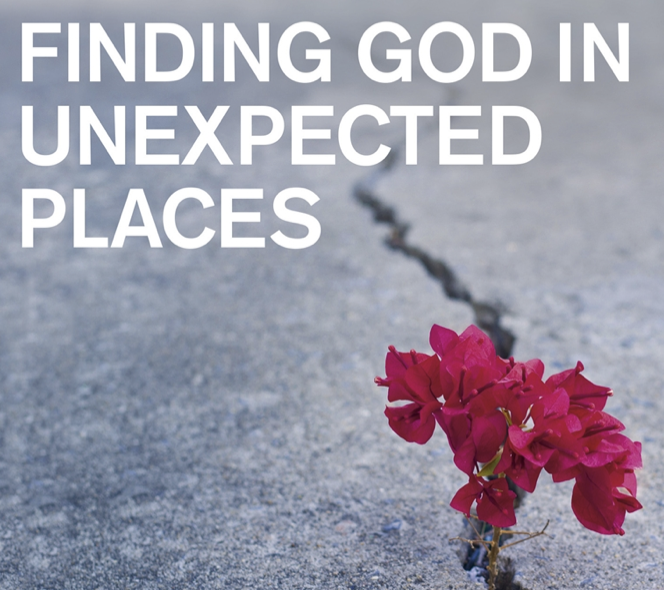
If there is one passage many people know about, it’s 1 Corinthians 13: where it explains what love is all about. But it’s isn’t about romance but a telling off, it’s trying to encourage a group of people to change their ways. They need to be transformed. We could look at this and focus upon the Church but it is wider than that.
The Church needs to be the impetus for that societal change. Then we will see the Kin_dom of God.
So what is love all about?
Love is a tricky subject. Just think that if it were simple, relationships would be so solid, we would know how to rebuild, reconstruct damaged links with people. Love is far more than the erotic stuff.
In the Greek, love could describe eros, that passionate erotic love – nothing wrong with that whatsoever. It isn’t all X-rated ; but a beauty to behold between people; there’s philia, that love between friends and equals; there’s storge, the love of parents for their children; and agape, the love of mankind, people. You could equally describe them respectively as passionate, friendly, empathetic and unconditional love.
Stages of Life?

It might even be the stages of our love between two people as time goes by: from initially meeting up, developing to wider bonds, then to parenthood, and then to a love of people in general. But that is really the textbook description of love. In reality, well it can look so very different. We may have tried to love so much, but got little in return; or we could have been shown such love but others did not respond in the same way. The way we show love can be in how we respond to people.
How do we show that love?
Do we try to make them feel more important, inflate their ego perhaps, as that will make them smile, make them like us more even? Might we show others the parts of us that we want them to see, the bits that we consider loveable, and keep the rest hidden. It’s going to be found out really soon. Then it might get painful.




Paul’s Letter or Letters
I wonder why Paul was writing this letter to the Corinthians, those west of Athens. It might be described as the first letter but many feel that this was a series of letters which have been later brought together. Paul is trying to explain to the group of people, who may have attended the local synagogue as well as this house church, that they are still hurting each other.
It might have started out ok, but when the first spoken barbed comment was made, the response was in turn also barbed, and oh no – perhaps we have seen this before. They were passing on their hurts to each other. We may have thought that this passage we know so well was lovely – when it was an admonishment, a telling off. Paul speaks of love as more than a surface feature, it’s not something you can hang up on good occasions, but something so deep that it permeates every pore of our body.
Deeper more substantial than ‘I love you’

It’s beyond just saying I love you, but it’s – to use that adage – going the extra mile or three and seeing the real person. And if that’s what’s needed, we need to show that true self. There’s a call here to be real, so then others can really see us. That call could be directed at us individually but also to the Church as well. As a church God’s love is such a great gift to us all, in and outside of the church alike.
This is something we can ponder and reciprocate. Rather than try to be that wonderful perfect Christian when in the company of others, how about we show them ‘us’. Surely if we were to buy something in those post-Christmas sales that didn’t do as it says on the tin, we wouldn’t be happy? So let’s offer truth in all that we do, being honest, vulnerable even. If God finds us more than acceptable, from the Gospel of Luke a few weeks ago, beloved was the word, then let’s be the face of love for each other. That’s not going to be easy, but no one said that living the Christian life would be an easy ride. But it is one with God by our side.
Takeaway
So what can we takeaway from all this? Can we find in this Covid-torn world, where relationships are strained because of isolation and restrictions, where such times of being together might mean that we show our good side rather than the real us? Where when we know that we are being seen as ‘Church’ we offer our best rendition of that perfect Christian when others might be looking for realism, that our faith survives contact in difficult circumstances, it can show the bruises of life but still is in tact, and even when we want to shout at God – why? Because we want to walk with God in our lives, come what may. We want to be transformed.
The Church needs to be the impetus for that societal change. Then we will see the Kin_dom of God.
I found the dialogue interesting